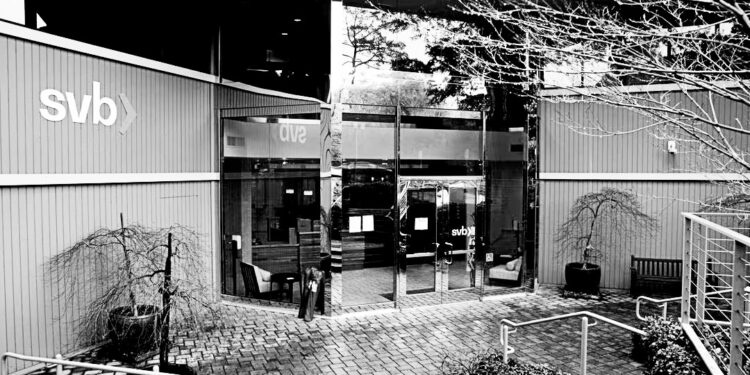Technology executives, prominent venture capitalists and founders including OpenAI CEO Sam Altman raced this weekend to keep alive companies caught up in the collapse of Silicon Valley Bank (SIVB.O).
Friday’s dramatic failure of the bank, which focuses on tech startups, was the biggest since the 2008 financial crisis. It roiled global markets, walloped banking stocks and left California tech entrepreneurs worrying about how to make payroll.
Aiming to avoid what Garry Tan, the CEO of startup accelerator Y Combinator, called a potential “extinction level event” in the tech sector, industry executives moved quickly to do what they could to save small businesses.
Altman, who runs one of Silicon Valley’s hottest companies, bailed out some entrepreneurs from his own pocket, according to a Twitter message by his brother and one beneficiary who spoke with Reuters.
“I was running out of options, and so I just emailed him,” Doktor Gurson, CEO of Rad AI, said in an interview on Saturday. Within an hour or two, Altman responded, offering him six figures: enough to make payroll and no strings attached, just a request to return the funds once Gurson is able, he said.
Asked for comment, Altman told Reuters, “I remember the investors who helped me out when I was running a startup and I really needed it, and I always try to pay it forward.”
Henrique Dubugras, co-CEO of fintech startup Brex, also spent the weekend working the phone after his company announced an emergency credit line on Friday to help startups get through their next payroll.
As of Saturday evening, he said Brex had received $1.5 billion in demand from nearly 1,000 companies. “We’re trying to sign up lenders by end of day tomorrow. Everybody is sprinting,” he said.
Even small startups are getting in on the action to help others. Aleem Mawani, founder of Streak, a company with about 30 employees, tweeted Friday he would lend his personal cash free of any terms to other small startups worried about paying staff. He said he then had discussions with a few companies and was aiming to prioritize lending for those living paycheck to paycheck.
“I’m a founder and I know how awful it would be to not make payroll,” Mawani said in an interview.
‘MALFEASANCE OR MISMANAGEMENT’
By late Saturday, more than 3,500 CEOs and founders representing some 220,000 workers had signed a petition started by Y Combinator appealing directly to U.S. Treasury Secretary Janet Yellen and others to backstop depositors, many of them small businesses who are at risk of failing to pay staff in the next 30 days.
The petition advocated “stronger regulatory oversight and capital requirements for regional banks” and an investigation into any “malfeasance or mismanagement” by SVB executives. More than 100,000 jobs could be at risk, the petition warned.
SVB did not reply to a request for comment, and Y Combinator did not elaborate on the petition.
Venture investors have advised startups to seek alternatives to gain short-term liquidity. Some, including Lowercarbon Capital, have offered loans to portfolio companies that have funds stuck at SVB.
Its partner Clay Dumas said Lowercarbon would provide payroll support for the next two weeks and was wiring funds out Monday.
Khosla Ventures told Reuters, “Given the rapidly evolving situation, we are talking to 100+ portfolio companies assessing their critical needs and plan to bridge where we are a lead or major investor.”
‘LIFELINE’
Rad AI’s Gurson had not talked to Altman for years when he emailed the OpenAI chief Saturday morning, desperate for help. The startup relied on SVB, the sudden closure of which meant he lacked the money to pay some 65 employees on Monday, he said.
“People’s livelihoods depend on us,” said Gurson, whose San Francisco-based company helps radiologists work more efficiently and includes staff with wide-ranging roles and wherewithal. “They’ve got mortgages to pay; they’ve got bills.”
Gurson’s co-founder waited eight hours on a Federal Deposit Insurance Corporation hotline to no avail, he said. Multiple attempts to transfer funds out of SVB had failed.
But Gurson saw a Twitter post from Altman, whom he met as a founder participating in 2014 in Y Combinator, where Altman was president. The two men did not know each other very well, he said.
“It’s like a lifeline,” Gurson said of Altman’s generosity.
Gurson estimated “conservatively” that Altman has given more than $1 million to support other startups in similar need.
“The crazy thing here is he’s not an investor in our company,” Gurson said. “He didn’t ask for anything.”
Altman did not comment on how much he had given companies but said he did not view his contributions as risky.
“Even if SVB can’t find a buyer or a loan over the weekend, a lot of the money startups have on deposit will be made available to them. But in the meantime, people are facing a real liquidity crunch through no fault of their own, and employees need to get paid,” he said.
Source: Reuters

